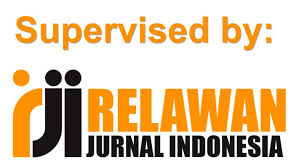Komunikasi Antarbudaya Mahasiswa Asing Di Universitas Muhammadiyah Bengkulu
DOI:
https://doi.org/10.37092/khabar.v7i1.1204Keywords:
cultural barriers, intercultural communication, university environment, students, adaptation strategiesAbstract
This study aims to examine intercultural communication in foreign students at the University of Muhammadiyah Bengkulu. Using Kim's Intercultural Communication theory as an analytical tool. The method used in this study is a qualitative descriptive approach. Data collection techniques through observation, in-depth interviews with 5 foreign students. The results of the study indicate that Cognitive-Affective Dimension Synergy: Deep cognitive understanding of Islamic values ??and Malay customs is positively correlated with students' emotional stability. Ghanaian and Thai students who are quicker to understand the concept of social hierarchy and religious values ??show a shorter culture shock phase and a smoother emotional transition. In contrast, Liberian students who experience the greatest cognitive challenges in understanding the context of high-context culture also show the longest duration of culture shock. Affective-Behavioral Connection: Emotional stability achieved in the affective dimension directly affects the ability to modify communication behavior. Students who successfully navigate through the culture shock phase with strong system support demonstrate more comprehensive adaptation of communication behaviors, including mastery of language registers, adoption of politeness norms, and integration of more natural religious expressions. Cognitive-Behavioral Feedback Loop: Successful communication practices in the behavioral dimension strengthen cognitive understanding of local cultural norms. Students who actively use honorifics and indirect communication strategies demonstrate faster increases in contextual understanding, creating a positive spiral in the adaptation process.
Downloads
Downloads
Published
How to Cite
Issue
Section
License
Copyright (c) 2025 Hafri Yuliani, Laily Ratna

This work is licensed under a Creative Commons Attribution-NonCommercial-ShareAlike 4.0 International License.









